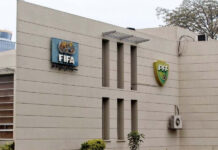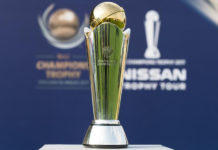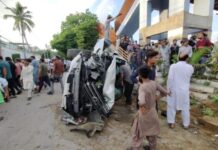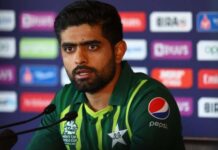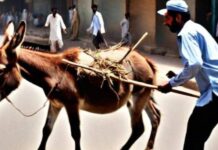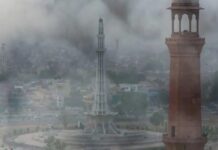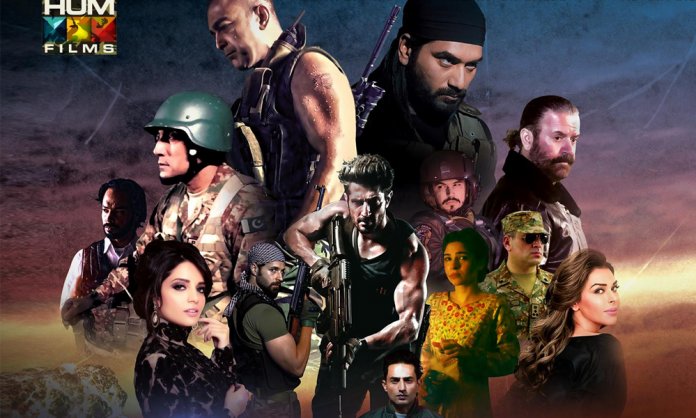Yalghaar may not manage to recover the heavy investment (by the producers) within a month but it certainly is the better option if you want to watch a Pakistani film and support Pakistani cinema.
It is in no way a perfect film but there are a few factors that might make you want to watch it in cinema. Read on:
The Positives:
Action like never before:
Hassan Waqas Rana was the man behind the action sequences of Waar; he returns as a director in Yalghaar and does a commendable job as The Man of Action. Be it scenes where real tracer bullets were fired or the ones where live ammunition was used, actions speak louder (and more clear) than words.
Patriotism never fails:
When stars like Shaan, Adnan Siddiqui, Bilal Ashraf and others talk about Pakistan Army and Pakistan, their dialogues manage to hit the heart (only for those who love the Army). In Lahore, people were seen lined up for tickets because they wanted to watch their favorite actor Shaan in the role of an Army officer, again!
Fresh faces, fresh perspective:
Newcomers Bilal Ashraf, Ahmed Taha Ghani and even Aly Mustansir appear in the films as characters, not as themselves which is a big plus. They are supported by veterans Ayub Khoso, Shaan Shahid and Humayun Saeed, followed by Gohar Rasheed, Hassan Waqas Rana, Ashir Azeem and a lot of newcomers who keep you involved in the plot.
War Films – We are getting there!
Pakistan has hardly produced War films besides Waar a few years back but we are getting there. Saya-e-Khuda-e-Zuljalal had some brilliant emotion-laced battle sequences and now Yalghaar. We are slowly and gradually getting there and in a couple of years, we might present a War film that takes the international audience by surprise.
Beauty Unlimited:
Armeena Rana Khan, Aleeze Nasser, Sana Bucha, Atiya Khan, Uzma Khan, Ayesha Omer …. this is not a fashion parade but the ladies in Yalghaar who add color to the movie.
It’s a turnaround for Uzma Khan who was miserably used in Teri Meri Love Story; for Janaan girl Armeena this film serves as another feather in the hat; Ayesha is shown as a crying bride to be but has a monologue with the bad guy that stands out.
Sana, Aleeze and Atiya play wife/girlfriend of one of the handsome hunks and although they are scattered all over the film, they do impress with their presence.
It feels like a ‘film’:
War films usually revolve around one incident or more; Yalghaar also is based on one such incident where brave men laid their lives for their country and ghazis come back victorious. Most of the film is shot on location while the use of real bullets and ammunition give the action an authentic touch.
Less vulgar than the competition:
People in the army smoke a lot and maybe that’s the reason there was no warning message when most of the people smoke on camera. However, the scene where Torjan talks about omelette or swears in front of the kidnapped bride could have been muted, censored or toned down as they left a bad impression. Even then, the film was less Vulgar than MVLU, which should be revisited by the Censor Board for being too ill-mannered to be true.
The Not So Positives:
Ill-placed Interval:
The timing of the interval is what matters the most in an action flick; the intermission sign must appear at an appropriate time, making the audience curious about the second half. Sadly, the end of the first half made people raise their eyebrows instead of raising their curiosity level. Even Bank Alfalah Card seemed better placed than the intermission, even though they did seem irritating at times!
Short-lived Villainy:
The audience was shocked when the antagonist Torjan (Humayun Saeed) was killed after a fist-fight with the leading man Captain Asad (Shaan) that should have lasted more than it did.
Just like Waar, the villain died a ‘kuttay ki maut’ which looked bad on the hero – the director could have been inspired by Chuck Norris’s climax fight sequence where he gets hit before he nails it!
Too much English … again:
Once again, the film has too much English but that’s because, in the Army, you live the language. The audience, however, isn’t from the Army and some of the scenes could have had more Urdu, less English dialogues.
Skydive ends before you could say – Skydive:
There was a brilliant action sequence where the heroes jump from a plane in order to reach their destination. The scene could have been extended as this is the kind of stuff the audience wants to see.
No character development:
Too many actors spoiled what could have been the best War film produced in Pakistan; from nowhere comes Atiya Khan on screen and we assume that since Ashir Azeem is talking to her, she might be his wife. Adnan Siddiqui’s character deserved more screen time as he has lots of fans who thronged the theater and were disappointed (including me).
The editor did it:
Whatever the technical glitches in the film, the Editor could have made the film look great; the insert where Bilal Ashraf & Co are flexing their muscles was needless, to say the least. Also, Shaan delivers his heart-touching speech with fauji haircut, but in the battlefield, the sideburns are back. The ideal placement for a brand, no?
The Army needs you!
When one of the characters dies in the arms of his colleague, he asks him to convey a message regarding the name of his unborn child to his wife. The emotions were there until he told him that be it a boy or a girl, they should join the army. That’s a little overboard, don’t you think, Doc?
Contributed by: Omair Alavi
The post first appeared on VeryFilmi.com








